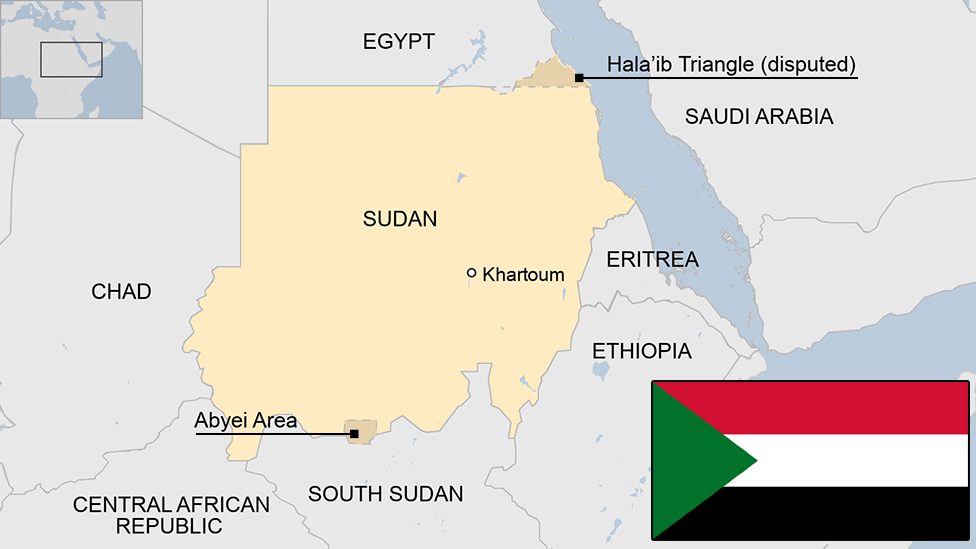Sudan protests: Doctor 'shot dead' during clashes
- Published
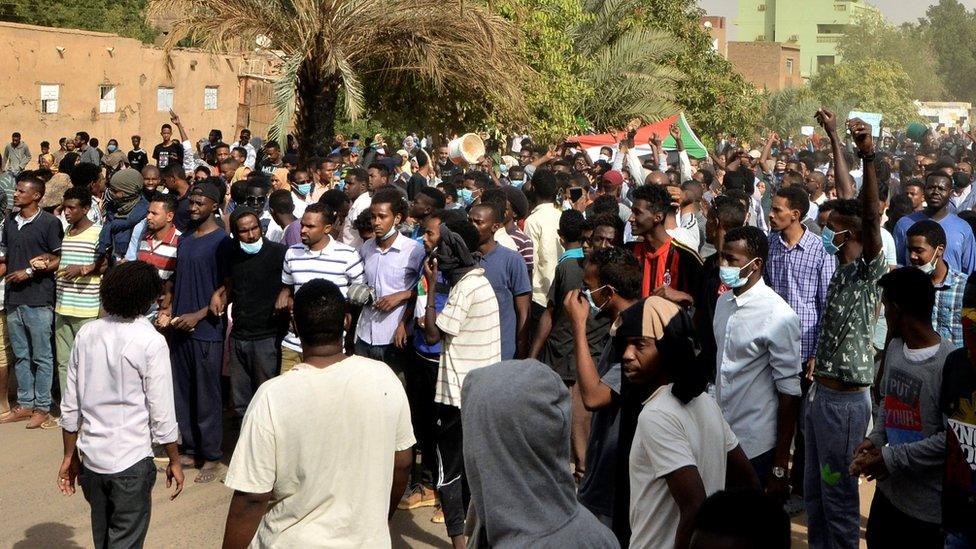
The anti-government protests have now stretched into their fifth week
A doctor has been killed in Sudan amid demonstrations against President Omar al-Bashir, a member of the Sudan Doctors Syndicate told the BBC.
He was shot by state forces which were firing directly on demonstrators, he said.
Nine other demonstrators were reportedly wounded in the clashes as protesters staged a sit-in at a hospital in the capital Khartoum.
It marks the fifth week of anti-government protests.
"Since the beginning, the security forces have responded with excessive use of power and with live ammunition," Dr Amjed Farid said.
Protesters had gathered outside the Royal Care International Hospital in the Burri district of the capital for a sit-in.
Activists online said security forces used tear gas to disperse the crowds, external and carried out mass arrests.
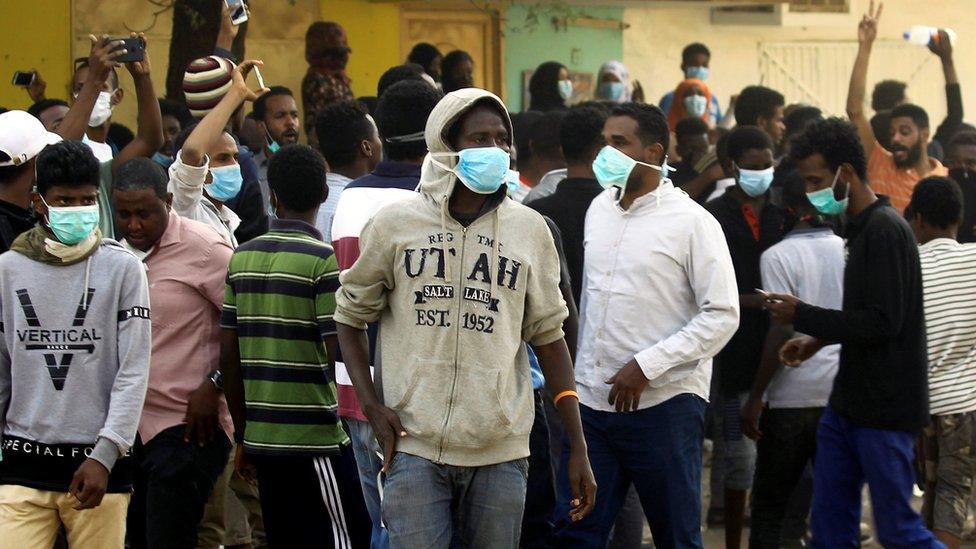
Demonstrators staged a sit-in outside a hospital in Khartoum on Thursday
An opposition spokesman told AFP news agency that a third person was killed in protests on Thursday.
Reuters news agency meanwhile reports government forces fired live rounds at thousands of people, external gathering to mourn one of the dead.

'Why doctors are being targeted'
A medic told BBC Newsday on condition of anonymity that the doctor killed on Thursday had been trapped inside a house with protesters:
The police forces tried to force them out so they fired tear gas inside the house. They couldn't stay inside anymore so the doctor took a very brave stand.
He opened the door and he kept his hand held up high trying to show the police that he was coming out peacefully. He started explaining he was a medical doctor and he was trying to provide medical services for the injured.
The response he got was: "You are a medical doctor? Well we are looking for you." And they took two steps back and they just fired at him.
In Sudan it is a threat to be a doctor. We feel that our life is in danger every day. We are advised that whenever we are on the street, whenever we are helping people, and even if we are doing our daily activities we should never mention to any police officers or national security members that we are medical doctors.
They are focussing on us because the medical doctors are now leading nationwide strikes they are fighting for national disobedience.
Read more: 'Why Sudan is shooting medics'

Protests have also spread to six other cities nationwide, and activists have announced fresh demonstrations beginning on Sunday 20 January.
The government has confirmed 24 people have died, but human rights groups say the number could be far higher.
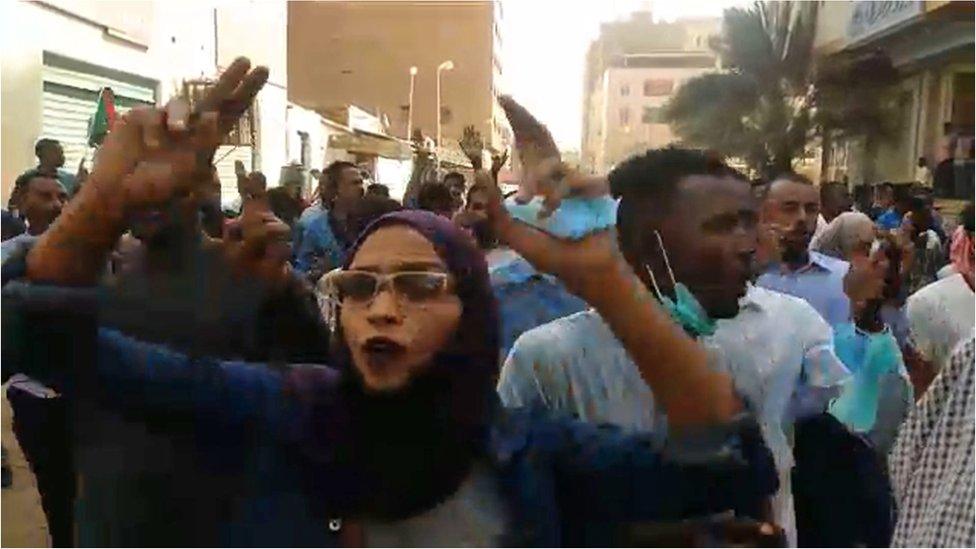
Protesters marched towards the presidential palace on Thursday before security forces reportedly fired tear gas
First sparked in December by complaints about rising prices, the demonstrations soon morphed into widespread anger against the president's 30-year rule.
One Khartoum resident told the BBC there had been economic protests in previous years, "but this time is totally different".
"I think people have really had enough. The momentum has been building up," they said. "The number of people demonstrating is rising because of the government violence."
President Bashir has blamed unnamed foreign powers for the protests and vowed to stay in office, challenging opponents to defeat him "through free and fair elections".
UN human rights commissioner Michelle Bachelet said she was "very concerned" about the situation, external and called on Sudan's government to respect the people's right to "peaceful assembly".
At least 816 people have been arrested so far in the unrest, the UN said.
Correction 1 February 2019: This story has been amended to remove the allegation that a 16-year-old was shot dead in the protests after the Sudan Doctors Syndicate retracted its statement. The group also said that the doctor who died was shot twice, not 14 times, with the bullets creating 14 pellet wounds to his chest.
- Published11 January 2019
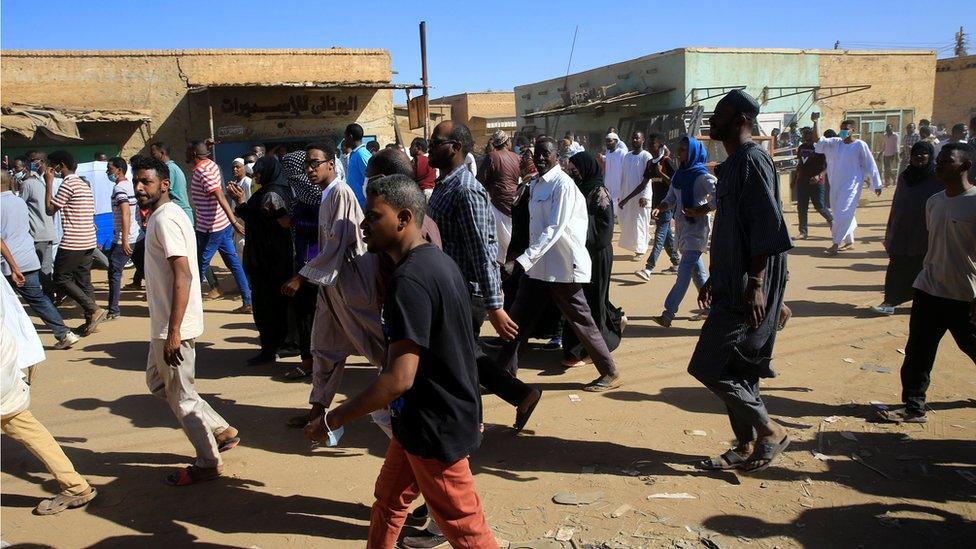
- Published13 September 2023
